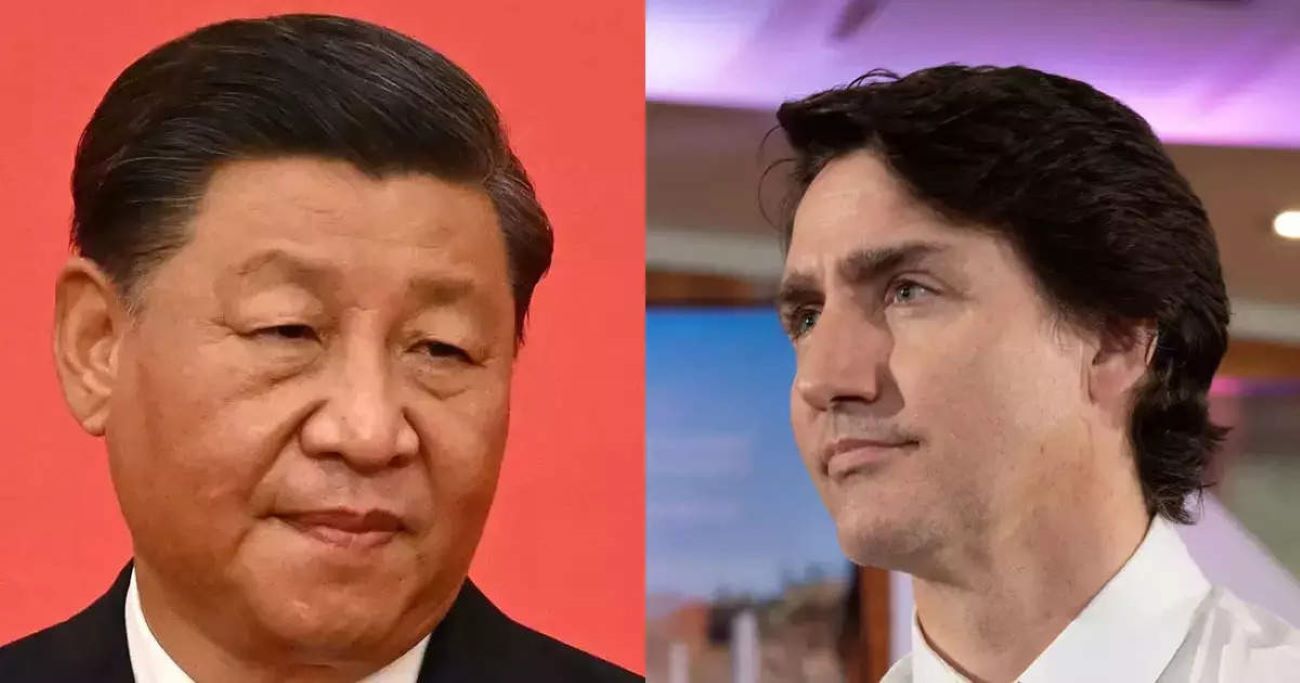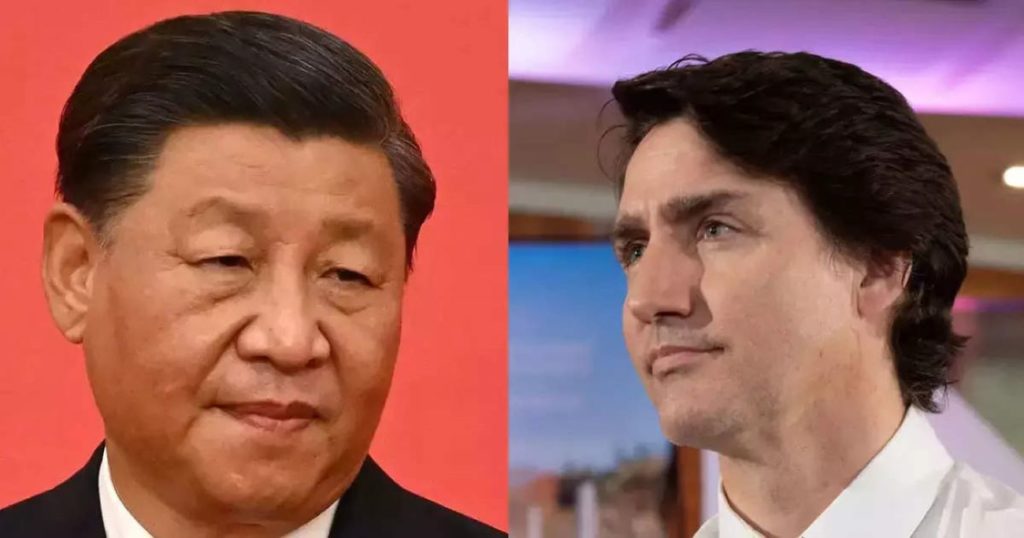Originally Authored at TheFederalist.com

When Russian President Vladimir Putin was reelected in 2018, Canadian Prime Minister Justin Trudeau rushed to the nearest microphone to express his worry that foreign actors might disrupt his nation’s future elections.
“We have been very much focused over the past years on strengthening our democratic institutions,” Trudeau said. “We need to make sure that they are kept up to date in holding off foreign meddling and interference.”
The prime minister’s supposed concern about the sanctity of “democratic institutions” isn’t just meaningless because of his use of government powers against Canadian truckers peacefully protesting his authoritarian covid-19 policies. They’re hollow because it’s clear neither Trudeau nor his government did much to protect Canada’s electoral system from foreign influence in the years that followed.
Chinese Election Interference
On Monday, Ottawa’s lead spy agency, the Canadian Security Intelligence Service (CSIS), confirmed that Communist China interfered in Canada’s 2019 and 2021 federal elections. These efforts “focused primarily on supporting those viewed to be either ‘pro-PRC’ or ‘neutral’ on issues of interest to the [Chinese] government,” a slide shown to Canadian officials reads, according to Reuters.
According to The Toronto Star, the briefing provided to the Foreign Interference Commission further revealed that, during the 2021 contest, the CCP specifically aimed “to deter Canadians, especially those ‘of Chinese heritage,’ from backing the Conservative party, then-leader Erin O’Toole, and B.C. Conservative candidate Kenny Chiu.” Conservative candidates took a hardline approach to China during the 2021 campaign, often highlighting the CCP’s brutal treatment of Uyghurs and criticizing Huawei, a Chinese tech giant suspected of facilitating spyware for Beijing.
Chiu ultimately lost his 2021 election bid, while Trudeau’s Liberal Party won both the 2019 and 2021 elections.
“The timing of these efforts to align with Conservative polling improvement; the similarities in language with articles published by PRC state media; and the partnership agreements between these Canada-based outlets and PRC entities; all suggest that these efforts were orchestrated or directed by the PRC,” the CSIS assessment reads, according to the Star.
O’Toole estimated China’s interference cost Conservatives “up to nine seats but added it had not changed the course of the election,” according to Reuters.
Reports of China’s election interference began surfacing early last year, when CSIS information detailing the CCP’s operations were leaked to The Globe and Mail. Trudeau initially rejected Conservatives’ call for an investigation into the allegations, at one point saying: “Canadians can be reassured that our election integrity held” in 2019 and 2021. The prime minister later acquiesced, appointing an investigator to look into the matter in March 2023.
During Monday’s briefing, CSIS called on Trudeau’s government to take more effective action to address future election interference attempts, with the agency noting there are “few legal or political consequences” for foreign actors infringing on Canada’s democratic process.
Trudeau Takes the Stand
Following the Foreign Interference Commission’s Monday briefing on CSIS’s findings, Trudeau testified before the body on Wednesday to disclose what he knew about China’s actions and when he learned it.
At the beginning of his remarks, the Liberal prime minister took a pot-shot at the government run by his predecessor, Conservative PM Stephen Harper, which he contended did not conduct enough “oversight” into Canada’s “national security universe.” He also hyped his government’s approach to national security issues and claimed his agencies are “compliant with Canadian values, rules, and the Charter, and … doing everything necessary to keep Canadians safe.”
During the hearing, the prime minister was asked when he learned about Chinese interference operations inside Canada, specifically with respect to the 2019 nomination of Liberal MP Han Dong. A CSIS memo disclosed this week alleged the Chinese Consulate in Toronto transported Mandarin-speaking Chinese students to Dong’s district to help him secure the nomination.
The memo noted “[s]ome intelligence reporting indicated students were provided with falsified documents to allow them to vote despite not being residents of Don Valley North” and that the records “were provided by individuals associated with a known proxy agent.”
Dong told the commission on Tuesday, as Rebel News described, that he “frequently spoke” with then-Counsel General Han Tao of China’s Toronto consulate. He also told the commission he hasn’t “seen any evidence” of PRC interference in Canadian elections and, “to the best of [his] knowledge,” does not believe there was any such interference regarding his 2019 nomination.
Canada’s elections commissioner is currently investigating Dong’s nomination, according to the outlet.
During his testimony, Trudeau claimed he was initially informed about the situation by his adviser Jeremy Broadhurst in September 2019 — a month before that year’s federal elections — and that “CSIS didn’t have any conclusions to share at that point” about whether “there was a sense that the actual result of the nomination could have been affected.”
“That wasn’t clear at all,” Trudeau said.
Trudeau further contended he did not believe CSIS’s warnings about Beijing’s Toronto consulate bussing Chinese students did not meet the “threshold” for removing Dong as a Liberal nominee.
“In this case, I didn’t feel that there was sufficient, or sufficiently credible, information that would justify this very significant step, as to remove a candidate in these circumstances,” Trudeau said.
Questionable Remarks
Despite CSIS’s findings, Trudeau seemingly isn’t convinced that China’s 2021 efforts were designed to benefit the Liberal Party.
According to The Epoch Times, the prime minister cast doubt on intelligence suggesting Beijing was attempting to boost his party’s electoral prospects, saying: “While individual officials may well have expressed a preference or another … it would just seem very improbable that the Chinese government itself would have a preference in the election.”
As noted above, these remarks contradict the intelligence provided by CSIS, which highlighted the CCP’s aim to undermine Conservative Party candidates.
Another questionable moment came when Trudeau was describing how he receives intelligence. The Liberal Party leader indicated he “may or may not read” intel briefs provided to him by administration officials, citing his busy work and travel schedule.
“The best way to convey information to me is to receive a direct briefing from my national security adviser and intelligence adviser, who would give me security updates, usually on several topics,” Trudeau said in French, via a translator.
Shawn Fleetwood is a staff writer for The Federalist and a graduate of the University of Mary Washington. He previously served as a state content writer for Convention of States Action and his work has been featured in numerous outlets, including RealClearPolitics, RealClearHealth, and Conservative Review. Follow him on Twitter @ShawnFleetwood
